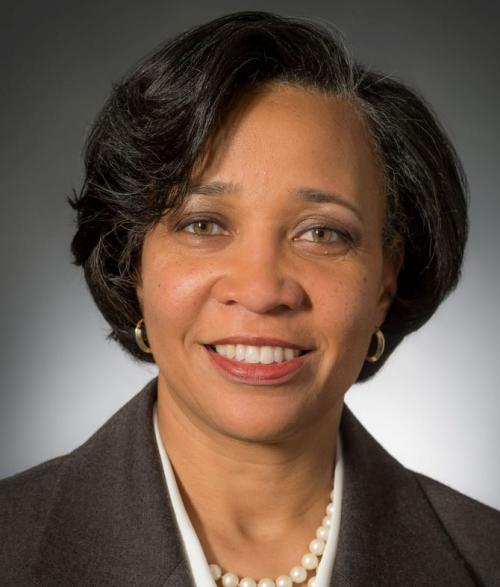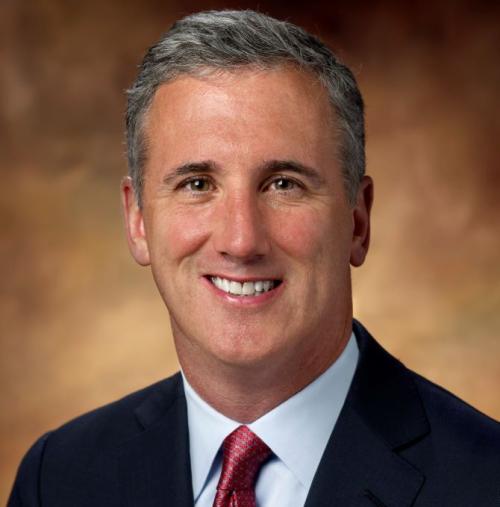Governance Professionals of Canada president Lynn Beauregard spoke to Corporate Secretary editor Ben Maiden late last year about some of the key challenges facing her group’s members in areas such as diversity, regulation and technology

Lynn Beauregard
Corporate Secretary: The Canadian Society of Corporate Secretaries (CSCS) this year changed its name to Governance Professionals of Canada (GPC). What was the thinking behind the move, and how does the new title better reflect your membership?
Lynn Beauregard: We started out as a group representing the interests of publicly traded organizations’ company secretaries. We had seen a number of new regulations coming down the pipe affecting how these organizations behaved in the boardroom, and so on.
[The Toronto Stock Exchange’s 1994] Dey Report… was the incentive for this organization to become what it was ‒ the [CSCS] ‒ because for the most part we were getting calls from corporate secretaries saying, ‘This is affecting me’, or ‘This is affecting my job’, or ‘We need to be better informed, better connected’. And so that was how we came into being.
But over the years, it became evident that the focus was always on governance. The job function of the corporate secretary is, technically, governance. I like to call the corporate secretary the traffic controller for governance in the organization. Governance has taken on a whole new meaning and has expanded beyond the reach of board administration and management; that’s where the name change became more and more evident ‒ that, and the fact that we were getting more members from outside… publicly traded organizations.
We were getting more members from not-for-profits, crowns, private organizations [and] co-ops. There’s certainly been an evolution in terms of the demographics of our membership. It became more and more obvious when we looked at the titles of our members that maybe about half would have the title of corporate secretary and the other half wouldn’t. They would be corporate counsel, general counsel or internal audit, finance, communications, board member, committee member.
It went beyond the job title, simply because the nature of what we’ve done over the years was to cover changes in governance, key challenges and how to overcome those, and those are not [unique] to the corporate secretary. They reach beyond that role, and not every company in Canada has a corporate secretary ‒ some of them outsource the role and somebody else in the organization has to have a knowledge of their responsibilities to their stakeholders, their community, their shareholders, and so on.
CS: Often people in these roles are wearing multiple hats, such as corporate secretary and general counsel. Are you seeing more of that or is it becoming a more specialized field?
LB: It depends on the organization. The larger the organization, the more specialized the role is ‒ especially for the corporate secretary ‒ and the more devolved the responsibilities around that are. But the smaller the organization, the more hats one wears.
What we’re also seeing is a lot of misunderstanding or perhaps lack of appreciation around not only the name ‘corporate secretary’ but also the role. [There is a] lack of real appreciation, from not only an organization’s perspective ‒ ‘What does a corporate secretary do?’ ‒ but even sometimes from boards.
They’re used to seeing corporate secretaries. Their interaction with them is fairly significant but it’s also limited to the activities reserved to [each board member’s] own purview on the board. There are quite a lot of other far-reaching responsibilities, from compliance and disclosure [to] managing the governance processes in the organization, that [board members] just may not see.
They see [the corporate secretary] as a board administrator. [But] oftentimes these people have legal backgrounds, and they need that to be able to serve their boards better and to navigate the legal implications and compliance implications that come along with a lot of the board’s responsibilities, as well as making sure the corporation’s requirements are being adhered to.
The corporate secretary ‒ or governance professional, which we like to call the position ‒ has a much more far-reaching and strategic role, both with management and the board. There have been times when it’s been argued that the corporate secretary should report to the chair of the board, but I think that would limit to some degree the interaction the corporate secretary has with the rest of management and his/her contribution to the strategic governance role in the organization.
There are so many different facets and sides [to the role] that the corporate secretary title just does not do it justice.
CS: Would a more appropriate title be chief governance officer?
LB: I think it would be much more appropriate, though not in every organization. And there certainly would be pushback in certain organizations, maybe because the role isn’t as strategic [there]. But in many… it should be a C-suite [position] at the top of the organization because the decisions, the interactions, the connections and all the elements they manage will affect the body from the top down.
You will see many organizations that have embraced that concept ‒ maybe more in the US right now than in Canada because we have so many different size organizations.
Corporate secretaries and governance professionals are looking to be better understood by their boards, their management, even their HR [department], to be able to get the proper compensation, to be able to get the proper recognition, to be able to get the proper appreciation and resources. Very rarely does the corporate secretary get the proper budget to staff up.
They are assailed from all sides by new requirements and new responsibilities, at times without necessarily getting the necessary recognition, compensation and resources to help them get through these changes.
CS: Do you expect to see any changes in that over the next year? Is there a growing awareness of the need for more resources?
LB: I think it’s going to be a slow progression. Making them part of a larger community is one step forward.
CS: One issue at the boardroom level that’s taking on more prominence is diversity. What do you see as the corporate secretary’s role in that area?
LB: It’s very important for corporate secretaries to be up to speed with whatever new regulations or best practices are developing, and there’s a lot that’s developing on diversity… They need to create a template for diversity in their organizations and they need to manage the ongoing requirements. They need to also make sure their boards, their C-suites are aware of the requirements.
There’s been a lot happening on the gender diversity side, and that’s really the only area Canadian regulators have provided guidance on. But the trend is toward further diversity: term limits, limits on directorships and more formal recruitment processes, not just gender diversity but diversity of opinion, of perhaps ethnicity, of community representation.
If you’re a mining group and you’re in a very remote region where you’re having an impact on indigenous groups, you need to have community engagement and to some degree you need to have that representation ‒ whether on your board or somewhere else in the organization ‒ to have the opinion of those you’re impacting.
The last thing we want to do is trail behind and then the next thing you see is quotas coming down or perhaps the regulator wielding the big stick and making those decisions on behalf of many organizations. We still need to move the ball down the field on that so there’s going to be a lot of focus on that and certainly governance professionals are going to be leading that charge.
CS: Technology is an increasingly important aspect of governance professionals’ lives. How are companies adapting to that?
LB: It really depends. Some larger organizations will have spent thousands of dollars on hiring external consultants, bringing those into the boardroom, educating the board members on the risks, sometimes even deploying their own teams to manage that risk. The concerns are not going away, it’s a huge area of risk for any organization.
What it comes down to is the board’s role. Where the responsibility of the company secretary or governance professional really is overall, I think, isn’t to manage the cyber-security risk or necessarily manage the external consultants or the information, but it’s really to manage the board’s role in managing its risk, its exposure, and making sure it is getting the proper information it needs to make important decisions.
CS: So it’s not that company secretaries need to be particularly technology-savvy, more that they need to be aware?
LB: I would be surprised if any organization asked its company secretary to become a cyber-risk specialist. I think any company secretary or governance professional involved with his/her board will know he/she needs to get either the CTO [or] the CIO lined up with the proper briefing [that executive] needs, and to have that expertise provided to the board.
CS: Are there any particular new regulations coming down the pipe in 2017 that governance professionals in Canada need to keep an eye on?
LB: There are things evolving in proxy voting, in disclosure, there are things evolving depending on the type of organization, mining or otherwise. I don’t see anything huge right now. Certainly there’s evolution on the diversity side of things.
CS: The regulatory environment in the US is up in the air, given the change in administration, but the SEC does have its universal proxy proposal out for comment. Is that something you are paying attention to?
LB: Yes. It would affect Canadian organizations to some degree, so we pay attention to what’s happening south of the border and there are also some consultations here on proxy voting. We’ve had tons of discussions on that and it’s still something that hasn’t necessarily been fixed. We watch what’s going on and we have looked at the [Canadian Coalition for Good Governance (CCGG)]. It is certainly in support of universal proxies is pushing for similar requirements here in Canada.
CS: Do you as a group have a view on universal proxies?
LB: We don’t at this point. We have an advocacy group that is looking at it. The CCGG is probably the biggest voice in Canada that’s going to lead the charge on that. We’ll look at it more from an issuer perspective and see whether that will add to the burdens [on organizations] or will lead to improvements in the way organizations manage that process.
CS: Are there any particular themes arising for this proxy season?
LB: We’ve touched on cyber-risk and diversity, and both of those are very high up the agenda. Especially for publicly traded organizations, compensation is going to be a huge area of focus in 2017, I think. Executive pay and pay for performance are, I think, things that aren’t going away.









